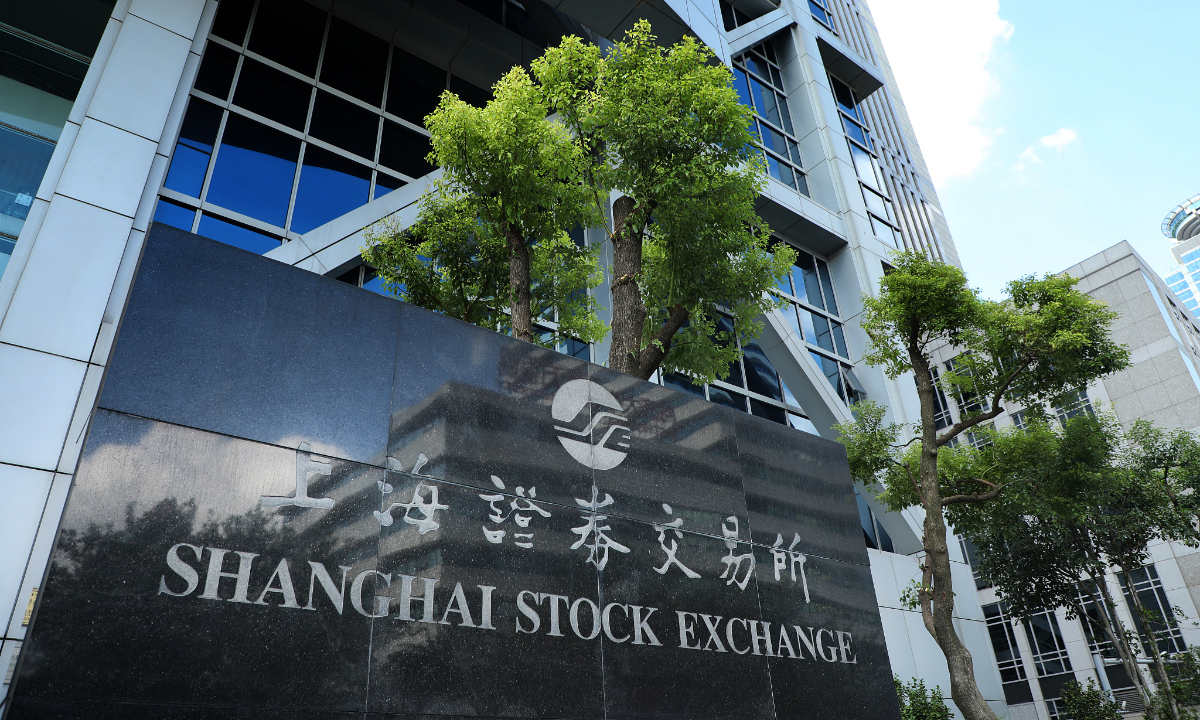
Shanghai Stock Exchange Photo:CFP
China's three major stock exchanges have reportedly formulated oversight standards that target abnormal program trading,
mk with trials conducted internally, as Chinese financial regulators have strengthened supervision of trading to support the long-term healthy development of China's capital market.
The Shanghai, Shenzhen and Beijing stock exchanges have drafted details to strengthen oversight of program trading, and they started to solicit public opinion from Friday.
The Securities Times newspaper reported on Sunday that those exchanges have set oversight standards on abnormal program trading, with trials being conducted internally.
Generally speaking, program trading is large-volume trading conducted by computer-generated algorithms. According to the draft rules released by the stock exchanges, each single account that submits 300 orders and cancellations within a second or more than 20,000 such transactions in a day will be considered as having engaged in high-frequency trading.
The exchanges may implement differentiated fees for high-frequency trading, set fees based on indicators including the number of orders submitted and withdrawn and their frequency, and charge additional fees such as traffic fees and withdrawal fees, according to the stock exchanges.
The China Securities Regulatory Commission, China's top securities regulator, issued trial regulations on quantitative trading last month.
The rules on program trading provide clear guidance on program traders and will help maintain market trading order and fairness, Dong Shaopeng, a senior research fellow at the Chongyang Institute for Financial Studies at the Renmin University of China, told the Global Times on Sunday.
He said the rules will push financial institutions engaged in quantitative trading to strengthen internal risk controls, and thereby build a solid foundation for the stable development of these firms and promote the high-quality development of China's capital market.
As for their broader impact, the new rules will help maintain the transparency and fairness of the capital market, reduce stock manipulation and protect smaller investors from abnormal trading activities, according to Dong.
In April, the State Council, China's cabinet, released a new guideline on strengthening regulations, forestalling risks and promoting the high-quality development of the capital markets. This was the third guideline document on the capital market circulated by the State Council in two decades.
As the effects of strengthened supervision bear fruit, observers expect that the country's stock market will follow a track of stability this year, with investor sentiment improving.
China's stock market is expected to show a better performance in June, as the property market continues to recover thanks to a series of targeted policies, and listed companies' profits are also expected to recover amid the overall economic recovery, Yang Delong, chief economist at Shenzhen-based First Seafront Fund, told the Global Times.
Yang predicted that more international capital will flow to China. He noted that the Chinese mainland and Hong Kong stock markets are good places to diversify investment portfolios.
In addition, Yang said that state-owned capital should accelerate investing in the capital market to stabilize the market and elevate investors' confidence.
UBS analysts said in a recent note sent to the Global Times on June 5 that they believe China's stock market is strengthening to a lasting recovery from a technical rebound. As a result, they said they have turned bullish on the market and further raised the year-end target for the MSCI China Index to 69, which would be a rise in the mid double digits from the current level.
Betting on potential opportunities in China's opening-up and economic recovery, many international financial institutions have also actively stepped up their investments in China. For example, AllianceBernstein, a global asset management company, announced in May an increase in the registered capital of its branch in China from 200 million yuan ($27.62 million) to 300 million yuan.
Yang called for investors to have patience and confidence in China's economy and stock markets, stressing that value investing will bring excess returns.

